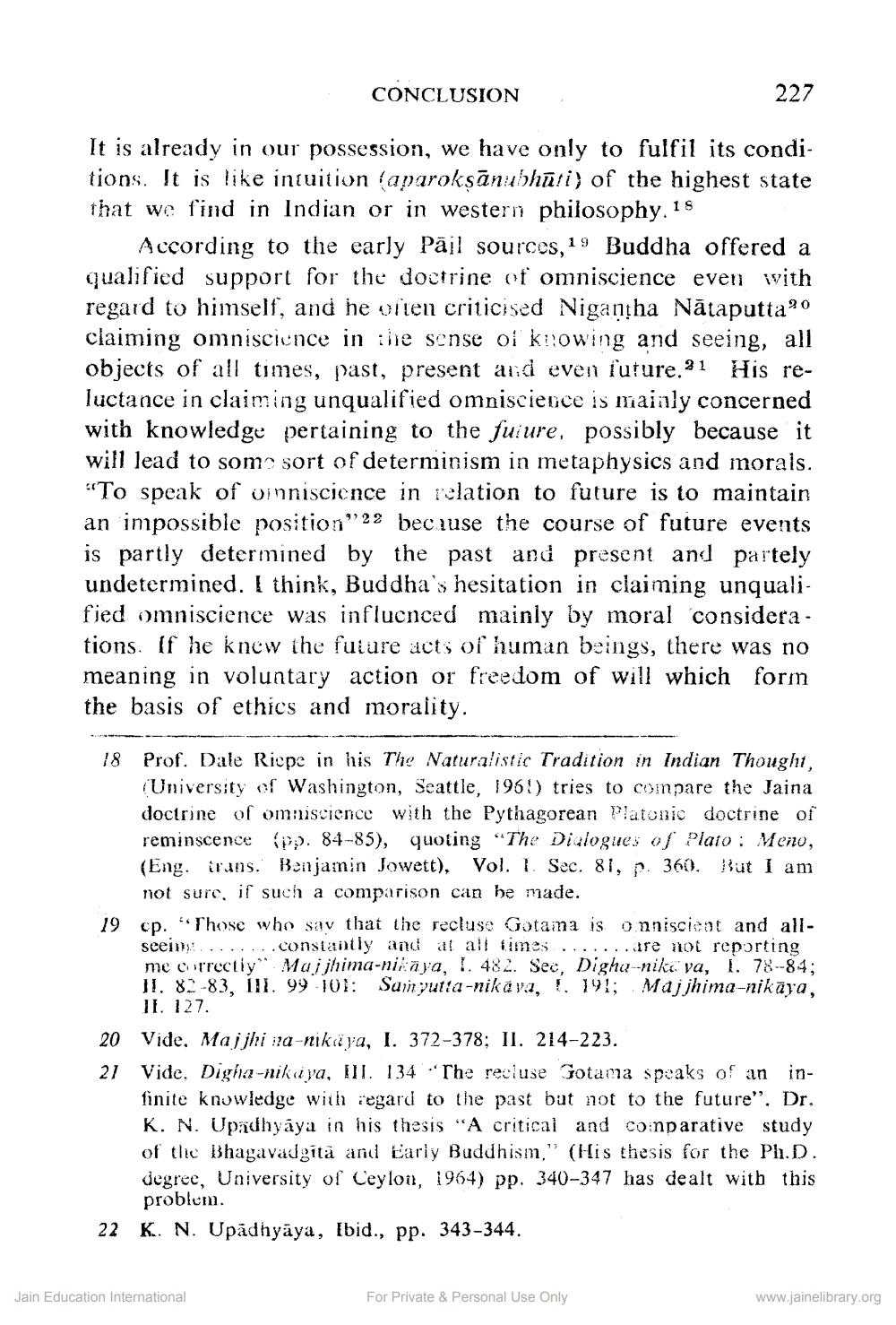________________
CONCLUSION
227
It is already in our possession, we have only to fulfil its conditions. It is like intuition (aparoksanubhūli) of the highest state that we find in Indian or in western philosophy. 19
According to the early Păil sources, 19 Buddha offered a qualified support for the doctrine of omniscience even with regard to himself, and he orien criticised Niganha Nātaputta? 0 claiming omniscience in ihe sense of knowing and seeing, all objects of all times, past, present and even future.21 His reluctance in claiming unqualified omniscience is mainly concerned with knowledge pertaining to the future, possibly because it will lead to som sort of determinism in metaphysics and morals. "To speak of vinniscience in relation to future is to maintain an impossible position"22 because the course of future events is partly determined by the past and present and partely undetermined. I think, Buddha's hesitation in claiming unqualifjed omniscience was influenced mainly by moral considerations. If he knew the future acts of human beings, there was no meaning in voluntary action or freedom of will which form the basis of ethics and morality.
18 Prof. Dale Ricpe in his The Naturalistic Tradition in Indian Thought.
University of Washington, Seattle, 1961) tries to compare the Jaina doctrine of omniscience with the Pythagorean Platonic doctrine of reminscence (pp. 84-85), quoting "The Dialogues of Plaio : Meno, (Eng. irans. Benjamin Jowett), Vol. I. Sec. 81, p. 360. But I am
not sure, if such a comparison can be made. 19 cp. Those who sav that the recluse Gotana is onniscieat and all
seein..........constantly and at all times....... are not reporting me crrectiy Majjhima-nitaya, I. 482. See, Digha-niko va, 1. 78-84; II. 82-83, 111. 99 101: Sain yutla-nikava, (. 191; Majjhima-nikāya,
II. 127. 20 Vide. Majjhi :?a-nikiya, I. 372-378; II. 214-223. 21 Vide, Digha-nikuya, III. 134 The recluse Gotama speaks of an in
finite knowledge with regard to the past but not to the future". Dr. K. N. Upadhyāya in his thesis "A critical and conparative study of the Bhagavadgita and Carly Buddhism." (His thesis for the Ph.D. degree, University of Ceylon, 1964) pp. 340-347 has dealt with this
problem. 22 K. N. Upadhyāya, Ibid., pp. 343-344.
Jain Education International
For Private & Personal Use Only
www.jainelibrary.org




